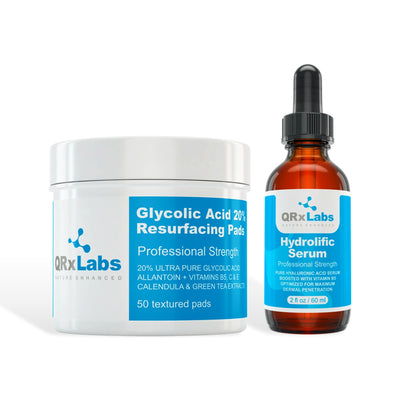What is the best hormonal acne diet meal plan?
Acne is a common skin condition that affects up to 80% of people between the ages of 11 and 30. Hormonal acne, also known as acne vulgaris, is a specific type of acne that is caused by hormonal imbalances in the body. While there is no one-size-fits-all solution to treating hormonal acne, following a proper diet can help improve your symptoms and promote clearer skin.
Understanding Hormonal Acne
Hormonal acne occurs when the body's hormone levels fluctuate, leading to an overproduction of sebum, or oil, in the skin. This excess oil can clog the pores and result in the formation of acne lesions.
What causes acne?
Acne can be caused by a variety of factors, including hormonal imbalances, genetics, and certain lifestyle choices. Hormonal imbalances, specifically an increase in androgen hormones such as testosterone, can trigger the overproduction of sebum and lead to the development of hormonal acne.
Eat for optimal blood sugar control
One important aspect of managing hormonal acne is maintaining stable blood sugar levels. High glycemic index (GI) foods, such as refined carbohydrates and sugary snacks, can cause spikes in blood sugar levels and potentially worsen acne symptoms. To promote better blood sugar control, it's best to opt for low GI foods like whole grains, fruits, vegetables, and lean proteins.
Try cutting out dairy and whey protein
Dairy products, particularly cow's milk, have been linked to an increase in hormonal acne. This may be due to the hormones present in milk as well as its potential to increase insulin levels. Additionally, whey protein supplements, commonly used in fitness routines, have been associated with acne breakouts. If you're experiencing hormonal acne, it may be beneficial to eliminate or reduce your consumption of dairy and whey protein.
Eat mostly whole, nutrient-dense foods
When it comes to managing hormonal acne, focusing on a diet rich in whole, nutrient-dense foods is key. These foods provide essential vitamins, minerals, and antioxidants that support overall skin health. Include plenty of fruits, vegetables, lean proteins, and healthy fats in your meals to nourish your skin from within.
Foods and beverages to enjoy
Some foods and beverages have been found to be beneficial for hormonal acne:
- Green tea: Green tea contains antioxidants that may help reduce acne lesions.
- Omega-3 fatty acids: Foods rich in omega-3 fatty acids, such as fatty fish and flaxseeds, have anti-inflammatory properties that can potentially improve acne symptoms.
- Antioxidants: Brightly colored fruits and vegetables, such as berries, spinach, and kale, are rich in antioxidants that can help protect the skin from damage.
Foods and beverages to avoid
On the other hand, some foods and beverages may exacerbate hormonal acne symptoms:
- High GI foods: Foods with a high glycemic index, such as white bread, sugary drinks, and processed snacks, can contribute to acne breakouts.
- Cow's milk: Dairy products, especially cow's milk, have been associated with an increased risk of hormonal acne.
- Chocolate: While the link between chocolate consumption and acne is still debated, some studies suggest that certain types of chocolate may worsen acne symptoms in susceptible individuals.
Supplements that may help
In addition to dietary changes, certain supplements may also aid in the management of hormonal acne. These include:
- Zinc: Zinc has been shown to reduce inflammation and help regulate hormone levels, making it a potential supplement for improving acne symptoms.
- Vitamin D: Low vitamin D levels have been associated with an increased risk of acne. Supplementing with vitamin D may help improve acne symptoms.
- Probiotics: Probiotics, which are beneficial bacteria, can help support gut health and potentially reduce inflammation associated with acne.
Other Treatments for Hormonal Acne
In addition to following a hormonal acne diet in Hindi, there are other treatments that can help manage and prevent breakouts:
- Proper skincare routine: Cleansing your skin twice a day, using non-comedogenic products, and avoiding excessive scrubbing can help keep your skin clear.
- Over-the-counter acne treatments: There are various over-the-counter acne treatments available, such as cleansers, toners, and spot treatments, that can help control breakouts.
- Prescription medications: In severe cases of hormonal acne, your dermatologist may prescribe medications, such as oral contraceptives or anti-androgen drugs, to help regulate hormone levels and reduce breakouts.
- Professional treatments: Procedures like chemical peels and laser therapy can help improve the appearance of acne and prevent future breakouts.
Takeaways
While there is no definitive hormonal acne diet meal plan that works for everyone, making dietary changes can help improve symptoms and promote clearer skin. By focusing on blood sugar control, eliminating or reducing dairy and whey protein, and incorporating whole, nutrient-dense foods into your meals, you can support your skin's health and potentially reduce hormonal acne breakouts. Additionally, certain supplements like zinc, vitamin D, and probiotics may provide additional support. Remember to consult with a healthcare professional before making any significant dietary changes or starting new supplements.


















